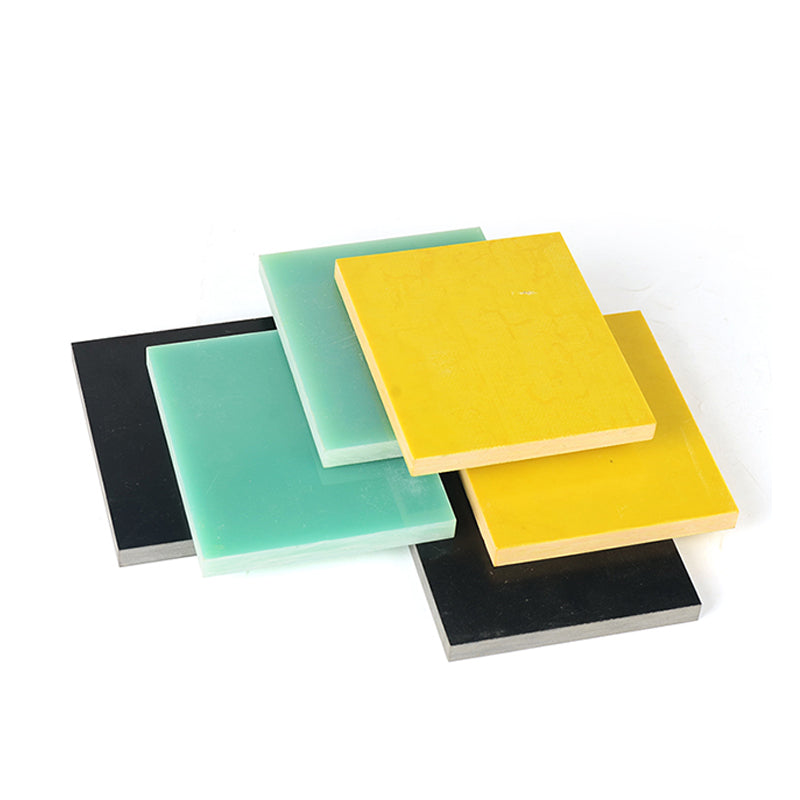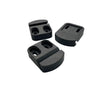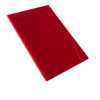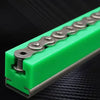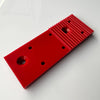Industrial Applications of Bakelite: Heat-Resistant Components You Can Trust
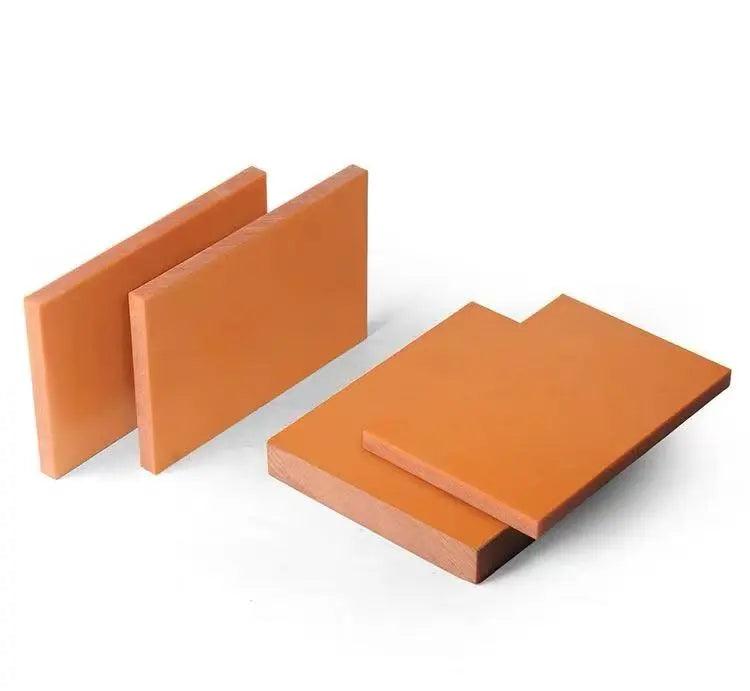
Discover the versatile and durable world of Bakelite in my latest blog post, "Industrial Applications of Bakelite: Heat-Resistant Components You Can Trust." This comprehensive guide delves into the historical significance and modern uses of this revolutionary material, highlighting its key properties and benefits.
Explore Bakelite's exceptional electrical insulation capabilities, making it indispensable in the manufacturing of insulators, bushings, washers, and spacers for various industries. Learn how the automotive industry relies on Bakelite for durable components like distributor caps and insulation pads, enhancing vehicle performance and safety.
In the aerospace and defense sectors, discover how Bakelite’s lightweight yet strong characteristics make it ideal for critical components, ensuring reliability under demanding conditions. Understand Bakelite’s heat resistance properties, enabling its use in high-temperature industrial environments.
Dive into its mechanical applications, including gears, bearings, and brake pads, where Bakelite’s rigidity and wear resistance play a crucial role. Additionally, explore the sustainability efforts in recycling and repurposing Bakelite, positioning it as a future-forward material in eco-friendly manufacturing.
This post covers:
- Introduction to Bakelite in industrial applications
- Electrical insulation and components
- Automotive industry uses
- Aerospace and defense applications
- Bakelite in high-temperature environments
- Mechanical and structural uses
- Sustainability and future innovations
By understanding these diverse applications, you'll see why Bakelite remains a trusted material for heat-resistant components across various industries. Dive into the full post to uncover how this synthetic plastic continues to shape modern manufacturing with its unique properties and innovative uses.

Introduction to Bakelite in Industrial Applications
A Brief History of Bakelite
Bakelite, invented by Belgian chemist Leo Baekeland in 1907, marked the dawn of the modern plastics industry. As the first synthetic plastic, Bakelite's creation represented a significant advancement over natural materials, providing unique properties that met the burgeoning needs of industrial applications. Baekeland’s breakthrough was based on the combination of phenol and formaldehyde, which resulted in a thermosetting phenolic resin known for its high strength and durability.
Significance in Industrial Applications
Bakelite quickly became a pivotal material in various industries due to its outstanding heat resistance, electrical insulation properties, and mechanical strength. During the early 20th century, it played a crucial role in the production of electrical insulators and automotive components. Its ability to withstand high temperatures and resist chemical reactions made it an ideal choice for a wide range of industrial applications.
Properties of Bakelite
High Mechanical Strength
Bakelite is renowned for its superior tensile and compressive strength. This high mechanical strength ensures that components made from Bakelite can endure demanding industrial environments. Its rigidity and stability under load make it suitable for applications requiring durable and reliable materials.
Heat Resistance
One of Bakelite’s most notable properties is its exceptional heat resistance. It can withstand temperatures up to 250°C without softening, making it ideal for high-temperature applications. This characteristic is particularly valuable in industries where materials are exposed to extreme heat conditions.
Electrical Insulation
Bakelite’s dielectric properties make it an excellent electrical insulator. It prevents current leakage and reduces the risk of electrical fires, which is why it is widely used in electrical insulators, bushings, washers, and other components where electrical insulation is critical.
Chemical Resistance
Bakelite offers good resistance to a variety of chemicals, including acids, alkalis, and solvents. This chemical resistance makes it suitable for use in harsh chemical environments, where it maintains its integrity and performance over time.
Dimensional Stability
Bakelite is known for its dimensional stability, maintaining its shape and structural integrity over time with minimal creep. This stability is crucial for applications where precise dimensions and long-term reliability are required.
Overview of Bakelite's Industrial Significance
The versatility and durability of Bakelite make it an invaluable material across multiple industries. Its unique combination of properties – mechanical strength, heat resistance, electrical insulation, and chemical resistance – enables it to meet the rigorous demands of industrial applications. From automotive and aerospace components to electrical insulators and high-temperature environments, Bakelite continues to be a trusted material in modern manufacturing. Its ongoing relevance is a testament to its innovative design and robust performance characteristics.
By understanding the historical significance and diverse properties of Bakelite, one can appreciate its continued importance in various industrial applications. This synthetic plastic remains a cornerstone of material science, contributing to advancements in safety, efficiency, and sustainability in manufacturing.

Electrical Insulation and Components
Bakelite's Role in Electrical Insulation
Bakelite is highly valued in the electrical industry due to its excellent dielectric strength and heat resistance. These properties make it an ideal material for a variety of electrical insulators, ensuring safety and reliability in electrical systems. Bakelite's non-conductive nature prevents the flow of electrical current, which is crucial for protecting electrical components and reducing the risk of short circuits and electrical fires.
High Dielectric Strength
One of the primary reasons Bakelite is used in electrical applications is its high dielectric strength. This means Bakelite can withstand high voltages without breaking down, making it perfect for components that require robust electrical insulation. The material's ability to prevent electrical conductivity ensures that it acts as an effective barrier between electrical parts, enhancing the safety and performance of electrical devices.
Heat Resistance
In addition to its dielectric properties, Bakelite’s heat resistance is another significant advantage. Electrical components often operate in environments where temperatures can rise significantly. Bakelite’s ability to withstand high temperatures without degrading ensures that it maintains its insulating properties under such conditions. This makes it a reliable choice for components exposed to high heat.
Applications in Electrical Insulation
Bakelite’s properties make it suitable for a wide range of electrical applications. Some of the key components that benefit from Bakelite's insulating capabilities include:
Insulators
Bakelite insulators are used extensively in electrical systems to separate conductive parts, ensuring that electrical currents do not flow where they are not supposed to. These insulators are critical in preventing short circuits and protecting both the equipment and users from electrical hazards.
Bushings and Washers
Bushings and washers made from Bakelite are commonly used in electrical equipment. Bushings provide a protective barrier for electrical conductors passing through grounded metal enclosures, while washers serve as spacers and insulators in various assemblies. Both components benefit from Bakelite’s high mechanical strength and insulating properties.
Spacers
Bakelite spacers are used to maintain proper spacing between electrical components, ensuring that there is no accidental contact that could lead to electrical failures. The material's stability and resistance to deformation make it ideal for maintaining consistent spacing in electrical assemblies.
Specific Electrical Applications in Industries
Bakelite's application in electrical insulation is widespread across various industries:
Power Generation and Distribution
In the power generation and distribution industry, Bakelite insulators and bushings are critical in managing high voltages and ensuring the safe transmission of electrical power. These components help in reducing the risk of power outages and electrical faults, thereby maintaining a reliable power supply.
Automotive Electrical Systems
The automotive industry utilizes Bakelite for various electrical components such as distributor caps and ignition coils. These parts require high heat resistance and excellent insulating properties to function effectively in the high-temperature environment of an engine bay.
Consumer Electronics
In consumer electronics, Bakelite is used in the manufacturing of circuit boards, switches, and other components that require reliable insulation and heat resistance. The material’s stability ensures the longevity and safety of electronic devices, enhancing user safety and product durability.
Conclusion
Bakelite's high dielectric strength and heat resistance make it an indispensable material for electrical insulation. Its applications range from power generation and automotive systems to consumer electronics, showcasing its versatility and reliability in safeguarding electrical components and ensuring operational efficiency. By leveraging Bakelite’s unique properties, industries can achieve greater safety, performance, and durability in their electrical systems.

Automotive Industry Uses
Bakelite in Automotive Manufacturing
Bakelite has long been a staple in the automotive industry due to its remarkable properties, including high heat resistance, electrical insulation, and mechanical strength. These characteristics make it an ideal material for various automotive components that require durability and reliability under demanding conditions.
Distributor Caps
One of the most common uses of Bakelite in the automotive industry is in the manufacturing of distributor caps. These caps are crucial for the proper functioning of the ignition system. They need to endure high temperatures and electrical stress. Bakelite’s excellent dielectric strength ensures that the distributor cap can effectively insulate the high voltage generated by the ignition coil, preventing arcing and ensuring a smooth distribution of electrical current to the spark plugs.
Insulation Pads
Insulation pads made from Bakelite are used extensively in automotive applications to provide thermal and electrical insulation. These pads are essential in areas where components need to be protected from heat generated by the engine and other systems. Bakelite’s ability to withstand high temperatures without degrading makes it perfect for this role. The pads ensure that sensitive electronic components are shielded from heat, thereby enhancing the overall reliability and performance of the vehicle.
Trim Parts
Trim parts, including various interior and exterior elements, benefit from Bakelite’s durability and aesthetic appeal. Bakelite can be molded into complex shapes and retains its form under mechanical stress. This makes it suitable for decorative and functional trim parts that need to maintain their appearance and structural integrity over time. Its resistance to chemicals and wear also ensures that these parts remain in good condition despite exposure to harsh environmental conditions.
Benefits of Bakelite in Enhancing Vehicle Performance and Safety
Heat Resistance
The automotive environment is characterized by high temperatures, especially around the engine bay. Bakelite’s high heat resistance up to 250°C ensures that components made from this material do not degrade or lose their insulating properties even under extreme conditions. This contributes to the overall safety and performance of the vehicle, as components remain reliable and effective throughout their lifespan.
Electrical Insulation
Electrical insulation is critical in automotive applications to prevent short circuits and electrical failures. Bakelite’s excellent dielectric properties make it an ideal material for components that need to insulate electrical currents. This is particularly important for parts like distributor caps and other electrical connectors, where insulation must be maintained to ensure the proper functioning of the vehicle's electrical system.
Mechanical Strength
Bakelite’s mechanical strength and rigidity are crucial for components that need to withstand mechanical stress and vibration. In the automotive industry, parts are often exposed to significant mechanical forces. Bakelite’s ability to maintain its structural integrity under these conditions ensures that components like bushings, washers, and trim parts do not fail, thereby enhancing the vehicle’s reliability and safety.
Chemical Resistance
Vehicles are exposed to various chemicals, including oils, fuels, and cleaning agents. Bakelite’s chemical resistance ensures that components remain unaffected by these substances, maintaining their performance and longevity. This property is especially important for parts located in the engine bay and other areas prone to chemical exposure.
Summary
By leveraging Bakelite’s unique properties, the automotive industry can produce components that significantly enhance vehicle performance and safety. From distributor caps to insulation pads and trim parts, Bakelite’s heat resistance, electrical insulation, mechanical strength, and chemical resistance make it an indispensable material in modern automotive manufacturing. Its continued use in the industry highlights its enduring value and effectiveness in meeting the rigorous demands of automotive applications.

Aerospace and Defense Applications
Lightweight and Strong Characteristics of Bakelite
In the aerospace and defense industries, the demand for materials that combine lightweight properties with high strength is paramount. Bakelite meets these requirements perfectly, making it a preferred material for various aerospace components. Its unique phenolic resin composition ensures that it remains both lightweight and durable, which is crucial for maintaining the performance and efficiency of aircraft and defense equipment.
Bakelite's lightweight nature reduces the overall weight of aircraft and defense vehicles, contributing to fuel efficiency and enhanced maneuverability. At the same time, its mechanical strength ensures that components made from Bakelite can withstand the mechanical stresses and strains encountered during operation. This combination of properties helps in reducing the payload while maintaining the integrity and safety of the equipment.
Uses in Electrical Systems Insulation
Electrical Insulators
In aerospace and defense applications, Bakelite is extensively used for electrical insulators. The material’s excellent dielectric properties ensure that it can effectively insulate electrical currents, preventing short circuits and electrical failures. This is particularly important in aerospace applications, where reliable electrical insulation is critical for the safety and functionality of the aircraft’s electrical systems.
Wiring and Connectors
Bakelite is also used in the insulation of wiring and connectors in aerospace applications. The material's ability to withstand high temperatures and resist chemical degradation makes it ideal for protecting electrical components from the harsh environments encountered at high altitudes. This ensures that the electrical systems of the aircraft remain operational and safe under all conditions.
Aircraft Interior Parts
Panels and Trims
Bakelite is used in the manufacturing of various interior parts of aircraft, including panels and trims. These components benefit from Bakelite's aesthetic appeal and durability. The material can be molded into intricate shapes and retains its form under mechanical stress, making it suitable for decorative and functional parts inside the aircraft cabin. Its resistance to heat and chemicals ensures that these components remain in excellent condition despite exposure to various environmental factors.
Seats and Fixtures
The seats and fixtures inside aircraft also utilize Bakelite for its combination of strength and lightweight properties. The material's ability to maintain structural integrity under load is crucial for the safety and comfort of passengers and crew. Additionally, Bakelite's ease of machining allows for the creation of custom-designed components that meet the specific requirements of aerospace manufacturers.

High-Temperature Applications
Engine Components
Bakelite's high-temperature resistance makes it suitable for components located near the aircraft's engines. These parts must endure extreme heat without losing their mechanical properties. Bakelite's ability to withstand temperatures up to 250°C ensures that it remains stable and effective even in the hottest parts of the aircraft.
Thermal Insulation
In defense applications, Bakelite is used for thermal insulation to protect sensitive electronic equipment from heat. Its ability to resist thermal degradation ensures that defense systems operate reliably in extreme conditions, which is crucial for mission success and equipment longevity.
By leveraging the unique properties of Bakelite, the aerospace and defense industries can produce components that significantly enhance the performance, safety, and efficiency of their systems. The material's continued use in these fields underscores its enduring value and effectiveness in meeting the rigorous demands of modern aerospace and defense applications.
Bakelite in High-Temperature Environments
Heat Resistance of Bakelite
Bakelite is renowned for its exceptional heat resistance, making it a suitable material for high-temperature industrial processes. It can withstand temperatures up to 250°C without softening or losing its mechanical properties. This thermal stability is one of the key reasons Bakelite is used in environments where materials are exposed to extreme heat. The ability to maintain its structural integrity and insulating properties at high temperatures ensures that Bakelite remains reliable under demanding conditions.
Applications in High-Temperature Environments
Industrial Machinery
In industrial machinery, Bakelite is used in the manufacturing of components that must endure high operational temperatures. For instance, gears and bearings made from Bakelite are capable of functioning efficiently in machinery that generates significant heat during operation. The material's resistance to thermal degradation ensures that these components maintain their performance and do not fail prematurely.
Electrical Insulators
Electrical insulators made from Bakelite are particularly valuable in high-temperature environments. These insulators are used in applications where electrical components are subjected to high heat, such as in power generation plants and high-voltage electrical equipment. Bakelite's ability to prevent electrical conductivity while withstanding high temperatures makes it an ideal choice for these critical applications.
Automotive Applications
In the automotive industry, Bakelite is used for components that are exposed to the intense heat of the engine bay. Distributor caps, ignition coils, and other engine parts benefit from Bakelite's thermal resistance. These components must operate reliably at high temperatures to ensure the vehicle's performance and safety. Bakelite's durability under such conditions makes it indispensable for these applications.
Aerospace Components
Aerospace components also leverage Bakelite’s high-temperature capabilities. Parts used in aircraft engines and other high-heat areas must withstand extreme temperatures without compromising their structural integrity. Bakelite’s heat resistance ensures that these components remain stable and reliable, which is crucial for the safety and efficiency of aerospace operations.
Thermal Insulation in Defense Equipment
In the defense sector, Bakelite is used for thermal insulation in equipment that must operate in extreme conditions. Its ability to resist heat and prevent thermal degradation protects sensitive electronic systems from high temperatures, ensuring they function correctly during critical missions. This application underscores Bakelite's importance in maintaining the reliability and effectiveness of defense equipment.
Conclusion
The heat-resistant properties of Bakelite make it an essential material for a wide range of high-temperature applications. From industrial machinery and electrical insulators to automotive and aerospace components, Bakelite's ability to withstand extreme heat without losing its mechanical and insulating properties ensures its continued relevance and indispensability in modern industrial processes. Its role in these applications highlights the material's versatility and reliability in challenging environments.

Mechanical and Structural Uses
Bakelite in Mechanical Manufacturing
Bakelite is widely used in the manufacturing of various mechanical parts due to its outstanding rigidity and wear resistance. These properties make it a reliable material for components that need to withstand continuous mechanical stress and friction. Bakelite's ability to retain its structural integrity over time ensures that mechanical parts made from this material can endure the demanding conditions of industrial environments.
Gears
Durability and Performance
Gears manufactured from Bakelite are known for their durability and performance. Bakelite’s high tensile strength and rigidity ensure that gears maintain their shape and function even under significant stress. This durability reduces the frequency of replacements and maintenance, leading to increased efficiency and reduced downtime in industrial machinery.
Bearings
Wear Resistance
Bearings made from Bakelite benefit from the material's excellent wear resistance. Bakelite's ability to withstand continuous friction without significant wear makes it an ideal choice for bearings that need to operate smoothly over long periods. This wear resistance contributes to the longevity of the machinery, ensuring consistent performance and reliability.
Brake Pads
Heat Resistance and Safety
Brake pads are another critical application of Bakelite in mechanical systems. The material's heat resistance ensures that brake pads can withstand the high temperatures generated during braking without degrading. This property is essential for maintaining the safety and effectiveness of braking systems, particularly in high-performance and heavy-duty applications. Bakelite's stability under thermal stress makes it a reliable material for this crucial safety component.
Other Mechanical Parts
Versatility in Applications
Beyond gears, bearings, and brake pads, Bakelite is used in various other mechanical parts such as bushings, washers, and spacers. Its versatility allows it to be molded into complex shapes, making it suitable for a wide range of applications. The material's resistance to chemicals and environmental factors further enhances its utility in industrial settings.
Impact on Machinery Longevity and Reliability
Enhancing Longevity
The use of Bakelite in mechanical parts significantly improves the longevity of machinery. The material’s wear resistance and mechanical strength ensure that components last longer and require less frequent replacement. This longevity translates to reduced maintenance costs and increased operational efficiency for industrial equipment.
Ensuring Reliability
Bakelite’s consistent performance under mechanical stress and high temperatures enhances the reliability of machinery. Components made from Bakelite can maintain their functionality and structural integrity over time, which is crucial for the continuous operation of industrial processes. This reliability is particularly important in industries where equipment failure can lead to significant downtime and financial losses.
By incorporating Bakelite into the manufacturing of mechanical and structural parts, industries can benefit from the material's superior properties. Its ability to withstand mechanical stress, heat, and wear makes it an invaluable resource for enhancing the performance and durability of industrial machinery.
Sustainability and Future Innovations
Recycling and Repurposing Bakelite
Efforts to align Bakelite with eco-friendly manufacturing practices have led to significant advances in recycling and repurposing this versatile material. Traditional Bakelite recycling processes are complex due to its thermosetting nature, which prevents it from being melted down and reshaped like thermoplastics. However, innovative methods are being developed to overcome these challenges and reduce environmental impact.
Mechanical Recycling
One approach to recycling Bakelite is mechanical recycling, which involves breaking down Bakelite products into smaller particles to be used as filler materials in new products. This method helps in minimizing waste and utilizing Bakelite scrap effectively. The recycled material can be integrated into composite materials, contributing to resource conservation and reducing the need for virgin raw materials.
Chemical Recycling
Another promising method is chemical recycling, which involves breaking Bakelite down into its constituent chemicals for reuse. This process not only helps in managing Bakelite waste but also in recovering valuable chemicals that can be used in other industrial applications. Such innovations are crucial for making Bakelite production and disposal more sustainable, aligning with the broader goals of green manufacturing.
Future Potential in Renewable Energy Systems
Bakelite's unique properties open up exciting possibilities in the field of renewable energy systems. Its high heat resistance and electrical insulation make it an ideal material for components in solar panels and wind turbines. By ensuring the reliability and efficiency of these systems, Bakelite can play a significant role in the transition to renewable energy.
Solar Panels
In solar panel manufacturing, Bakelite is used for insulating electrical components and ensuring they can withstand high temperatures generated by solar cells. Its durability ensures that solar panels have a long operational life, contributing to the sustainability of solar energy systems. The use of Bakelite in solar panels helps in maintaining their efficiency and reducing maintenance costs.
Wind Turbines
Wind turbines also benefit from Bakelite's properties. The material is used in the insulation of electrical components within the turbine, protecting them from the harsh environmental conditions often encountered in wind farms. Bakelite’s ability to withstand high mechanical stress and resist environmental degradation ensures that wind turbines operate efficiently and reliably, thus supporting sustainable energy generation.
Sustainable Architecture
Bakelite’s potential extends to sustainable architecture, where its durability and aesthetic versatility are highly valued. As the construction industry moves towards more sustainable practices, Bakelite offers a material that combines strength, longevity, and low environmental impact.
Building Materials
Bakelite can be used in a variety of building materials, including panels, trims, and fixtures. Its resistance to heat and chemicals makes it suitable for both interior and exterior applications. By providing a long-lasting and low-maintenance material, Bakelite contributes to the sustainability of buildings, reducing the need for frequent repairs and replacements.
Eco-friendly Design
Incorporating Bakelite into eco-friendly design projects can enhance the sustainability of buildings. Its ability to be molded into various shapes and designs allows for creative architectural solutions that do not compromise on durability or environmental impact. As sustainable architecture continues to evolve, Bakelite’s role in providing innovative and green building solutions is likely to grow.
Efforts in recycling and repurposing Bakelite, combined with its future potential in renewable energy systems and sustainable architecture, highlight the material’s versatility and importance in eco-friendly manufacturing practices. By embracing these innovations, industries can leverage Bakelite’s unique properties to contribute to a more sustainable future.

Frequently Asked Questions (FAQs) about Bakelite and Customization at BeePlastics
1. What is Bakelite, and why is it important in industrial applications?
Bakelite is the first synthetic plastic, known for its high heat resistance, electrical insulation properties, and mechanical strength. It is used extensively in industries such as electrical, automotive, aerospace, and defense due to its durability and ability to withstand extreme conditions. Its versatility makes it ideal for manufacturing components like gears, bearings, insulators, and panels.
2. How does Bakelite contribute to sustainability and eco-friendly manufacturing?
Bakelite contributes to sustainability through innovative recycling and repurposing methods. Although traditional recycling is challenging due to its thermosetting nature, new techniques like mechanical and chemical recycling are being developed. These methods reduce waste and recover valuable materials. Additionally, Bakelite’s durability and long lifespan contribute to reduced environmental impact by minimizing the need for frequent replacements.
3. What are the primary applications of Bakelite in high-temperature environments?
Bakelite’s heat resistance up to 250°C makes it suitable for high-temperature applications. It is used in industrial machinery, electrical insulators, automotive engine parts, and aerospace components. Its ability to maintain structural integrity and insulating properties under high heat ensures reliability and safety in these demanding environments.
4. Can BeePlastics undertake any customization for Bakelite products?
Yes, BeePlastics can undertake any customization, including sample customization and batch customization. We tailor our services to meet the specific needs of our clients, ensuring that the final product aligns perfectly with their requirements. Whether you need a single prototype or a full-scale production run, we can accommodate your needs.
5. What file formats does BeePlastics accept for customization designs?
BeePlastics accepts a variety of file formats, including PDF and CAD. These formats allow us to accurately assess and implement your design specifications, ensuring that the customized Bakelite products meet your exact requirements.
6. Is there a minimum order quantity (MOQ) for custom Bakelite products at BeePlastics?
No, there is no minimum order quantity (MOQ) at BeePlastics. We support projects of all sizes, from small sample orders to large batch productions, making our services accessible to a wide range of customers, from hobbyists to large industrial clients.
7. How does BeePlastics manage the production cycle for custom orders?
The production cycle at BeePlastics is tailored according to the volume of orders and the complexity of the customization process. We maintain open communication with our clients about the production progress in real-time, ensuring transparency and customer satisfaction throughout the manufacturing process.
8. Does BeePlastics provide samples for customized Bakelite products?
Yes, BeePlastics supports the provision of samples. The samples are provided free of charge, but the customer is responsible for the shipping costs. This allows clients to evaluate the quality and suitability of the customized Bakelite products before proceeding with larger orders.
9. What industries commonly use Bakelite materials provided by BeePlastics?
BeePlastics provides Bakelite materials to various industries, including electrical and electronics, automotive, aerospace, defense, and consumer goods. The material’s unique properties make it suitable for a wide range of applications, from electrical insulators and automotive parts to decorative items and industrial components.
10. How does BeePlastics ensure the quality of its customized Bakelite products?
Quality assurance is a top priority at BeePlastics. We follow strict quality control procedures throughout the production process, from material selection to final product testing. This ensures that all customized Bakelite products meet our high standards and exceed customer expectations.
By addressing these common questions, we aim to provide a comprehensive understanding of Bakelite’s applications and BeePlastics’ customization capabilities, ensuring that our clients can make informed decisions about their projects.
Conclusion
Bakelite's unique properties—such as its high heat resistance, exceptional electrical insulation, and mechanical strength—make it an invaluable material in a wide range of industrial applications. From its pioneering role in electrical insulators and automotive components to its contributions to aerospace and defense systems, Bakelite continues to demonstrate its versatility and reliability. Moreover, ongoing innovations in recycling and repurposing Bakelite align with modern sustainability goals, enhancing its relevance in today's eco-conscious manufacturing landscape.
At BeePlastics, our commitment to customization ensures that we meet the specific needs of our clients, providing high-quality Bakelite products that excel in performance and durability. Whether you need tailored solutions for high-temperature environments or precise components for mechanical applications, our expertise and dedication to quality make us a trusted partner in leveraging Bakelite's full potential. Embrace the advantages of Bakelite for your industrial needs and experience the difference in performance and sustainability.

Ready to experience the unparalleled benefits of Bakelite for your industrial applications? Fill out our contact form below to get started with customized solutions tailored to your needs. Whether you need high-temperature components or precise mechanical parts, we're here to help. Contact Us Now
-
Posted in
Bakelite, durable plastics, electrical insulation, heat-resistant components, industrial applications

